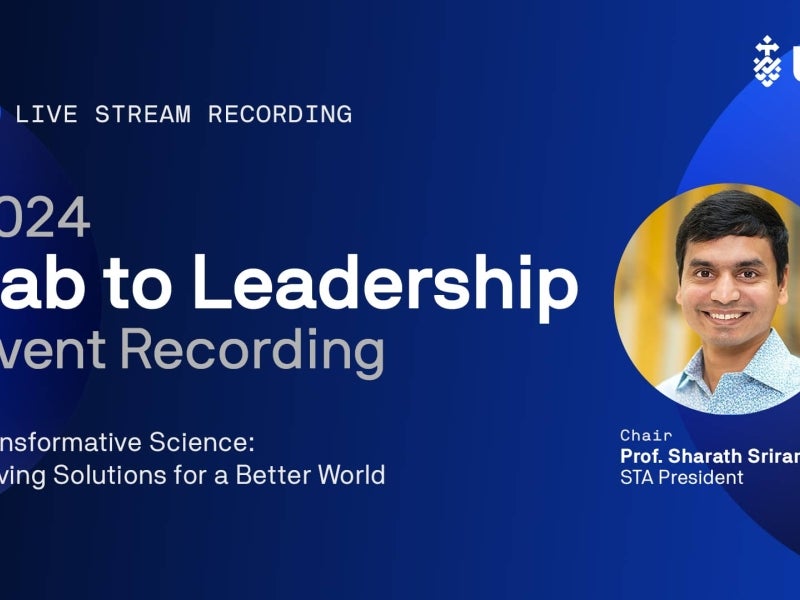Careers in sustainability: 8 jobs to make a difference

The days of sustainability practices being a ‘nice to have’ are long gone. As the effects of climate change become increasingly undeniable and the spotlight on global efforts to reduce emissions intensifies, sustainability has emerged as a rapidly growing and highly valuable sector within its own right.
Amidst this global trend, Australia’s low international rankings have prompted politicians to make significant changes – driving a major surge in top careers in sustainability.
With plans to reach net-zero emissions by 2050 and implement major domestic changes by 2030 in a race toward renewable resilience, the demand for qualified professionals with expertise in sustainability and renewable energy has never been greater.
This demand is driven by multiple factors. In the corporate space, Environmental, Social and Governance (ESG) is increasingly prominent, as is the consumer expectation of businesses’ sustainable practices.
Unsurprisingly, green jobs are fast growing, with some sources suggesting that roles with “sustainability” in the title have grown tenfold over the last decade.
The takeaway: if you’re looking for a high-impact career that can drive much-needed change, now is the perfect time to differentiate yourself as an expert in sustainability and renewable energy.
But what career paths can ‘green’ professionals take and what is the best way to become one? Below, we explore high-paying sustainability jobs, duties and salaries, and the leading postgraduate pathways to futureproof your career – and the planet.
Top careers in sustainability
Sustainability jobs and skills are in high demand, and new career opportunities are arising constantly.
A highly demanded sector means highly paid positions. Data from the FY23 Environment and Sustainability Remuneration Report found that some sustainability professionals in senior management are earning in excess of $300,000 per year.
Because sustainability is needed across most sectors, there are opportunities across multiple industries, including:
- financial and banking services
- government
- education
- mining
- manufacturing
- construction
- agriculture
- transportation
- energy
Roles are typically in-house, agency-based or on a consultant/freelance basis.
It’s also important to note that as the industry is still largely in its emerging phase, actual salaries for qualified professionals can be much higher than the current averages listed below.
As the eco-market remains in focus, science professionals with advanced leadership skills in tech, renewable energy, sustainability, and research and communication will stand out from the pack. But with so many professional possibilities to choose from, which pathways are best?
Here are eight of the top careers in sustainability.
Sustainability or renewable energy engineer
Sustainability and renewable energy engineers have the integral responsibility of designing and developing systems and technologies that create, promote or improve sustainable use. The specifics of this role will vary depending on the sector, but it will generally require high-level strategic, analytical, decision-making, project management and problem-solving skills, as well as technical proficiency.
These positions are typically either in-house or agency-based. In Australia, the median salary for a sustainable or renewable energy engineer is $130,000, with higher-paid positions averaging $180,000.
Sustainability manager
Sustainability managers oversee, evaluate and improve the impact of their business operations on the environment. Again, the specific responsibilities of this position will vary between sectors; in the e-commerce industry, for example, a sustainability manager may be focused on reducing carbon emissions by reducing plastic packaging and truck deliveries. In the finance industry, they may be concerned with climate risk analysis and ESG-focused investment strategies.
In Australia, the average salary for a sustainability manager can range from $117,000 - $162,000, with more senior positions earning $240,000 and beyond.
Energy consultant / Energy advisor
Energy or renewable energy consultants advise businesses on how to reduce high-emission energy consumption and transition to renewable energy sources. These positions are more often external (for example, agency, consultancy or freelance-based) rather than in-house.
Specific tasks will vary between industries, but the role generally involves conducting energy audits, recommending energy-saving measures and developing renewable energy projects.
Australia-based energy consultant positions average an annual salary of $80,000 - $155,000, with senior energy consultants averaging a total pay of $100,000 - $162,000.
Sustainability compliance manager
Sustainability compliance managers have the very important responsibility of ensuring their business complies with environmental laws and regulations. The role typically involves designing and conducting regular compliance audits, developing sustainability policies and training staff on environmental practices.
Maintaining a comprehensive and up-to-date understanding of relevant regulations is an important part of this position. These roles are well compensated, with average salaries starting at a ‘low’ of approximately $150,000. Currently, the median pay is $170,000 and ranges up to $175,000 and beyond.
IP and commercialisation officer
IP and commercialisation officers manage the intellectual property of sustainability and renewable energy innovations.
Their day-to-day work can involve drafting and filing patent applications, developing IP strategies that align with business goals, conducting IP audits, market research, competitive analysis, product development and more.
As developments in this sector advance rapidly in response to urgent demand, this position requires a lot of forward-thinking, strategy, and both business and industry savvy.
In Australia, the average commercial officer salary ranges from $90,000 - $140,000, with higher-paying positions earning $170,000 and beyond.
Policy officer
Environmental and sustainability policy officers work with governments and organisations to develop and implement policies that promote sustainable operations.
In practice, this can involve conducting research, drafting policy documents, monitoring industry trends, engaging with stakeholders, advocating for environmental regulations and more.
In Australia, environmental policy officers earn an average of $98,000 - $145,000 and beyond.
Renewable energy specialist
Renewable energy specialists play a crucial role in the transition to sustainable energy systems.
Their role can span a number of responsibilities, including research and development of green strategies, analysis of company sustainability practices, designing renewable energy systems, project planning, financial analysis and more.
They can be employed by various organisations, including government agencies, renewable energy companies, nonprofits and NGOs, and financial institutions.
Like many professions in this field, the role of renewable energy specialist is growing and salaries are varied. According to Jora.com, renewable energy specialists in Australia earn an average of $70,000 - $110,000, but data from Talent.com places the range even higher at $93,000 - $200,000.
Project manager
Sustainable project managers are responsible for overseeing and executing initiatives that promote environmental stability within an organisation or community. They handle all aspects of the project lifecycle, from initial planning and feasibility studies to implementation and monitoring.
Key responsibilities include developing project plans, managing budgets, ensuring compliance with environmental regulations and collaborating with key stakeholders. Project managers in Australia earn an average of $107,000 - $165,000 and beyond.
Why study sustainability courses with UTS Online?
Regardless of which career path in sustainability you want to pursue, choosing the right postgraduate qualification is foundational for long-term professional success.
UTS Online’s specialised suite of sustainability courses is expertly designed to merge science, leadership, and practice and address the complexities of the environmental, social and economic challenges facing our world today.
With a differentiating focus on expertise in energy and leadership, both the Master of Sustainable Leadership (Online) and the Master of Sustainable Energy (Online) programs feature accelerated, flexible and 100% online learning for the changemakers of tomorrow.
If you are eligible, you may also benefit from FEE-HELP availability and recognition of prior study, as well as a 10 per cent alumni advantage if you are a prior UTS student.
Guided by experienced academics and thought leaders, you’ll receive strong support from dedicated student success advisors and facilitators, and network with the next generation of industry decision-makers.
Students can engage in self-paced interdisciplinary coursework, tutorials, project work, real-world case studies and gain cutting-edge insights from industry experts. You’ll also participate in regular virtual sessions, one-on-one consultations and receive continuous feedback.
In the rapidly progressing field, UTS Online provides a unique trajectory to a transformative career in sustainability and renewable energy.
Futureproof your career and the planet
Pursuing a professional pathway in sustainability is a great way to secure the future of the planet and your future within it.
Still wondering why study sustainability courses with UTS Online? For aspiring strategic trailblazers, the Master of Sustainable Leadership equips students with the leadership skills and industry expertise needed to motivate others and drive change.
For future energy experts, the Master of Sustainable Energy provides the toolkit to drive innovation across global energy challenges. To achieve Australia’s renewable goals, we must be powered by the best – and that’s exactly what UTS Online’s specialised sustainability courses create.
Our journey towards a sustainable tomorrow is gaining momentum. Develop the skills and knowledge to drive change and innovation across global energy challenges, and not only futureproof your career but also contribute to the planet's wellbeing.
Learn more about UTS Online’s sustainability courses. Contact our Student Enrolment Advisors today by scheduling a quick chat or visiting our website.




